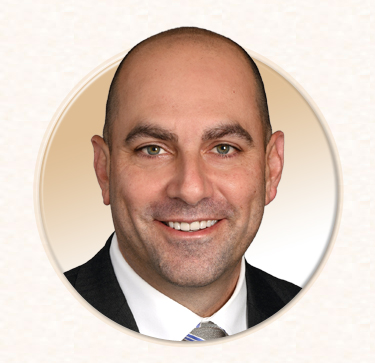Sentinel Lymph Node Biopsy

What is a Sentinel Lymph Node Biopsy?
A sentinel lymph node biopsy is a diagnostic surgical procedure performed to determine whether cancer has spread into the lymphatic system from its original site. The sentinel node is the first node to which the cancer spreads after leaving its site of origin.
Reasons for a Sentinel Lymph Node Biopsy
A sentinel lymph node biopsy can be used to diagnose the spread of the following cancers:
- Breast cancer
- Melanoma
- Head and neck cancer
- Thyroid cancer
- Non-small cell lung cancer
- Stomach cancer
- Colon cancer
- Vulvar cancer
- Endometrial cancer
- Cervical cancer
In the case of breast cancer, the sentinel node is located under the arm and is the first node that drains fluid from the breasts. Because of its position, many doctors believe that, if cancer spreads beyond the breast, the sentinel node is the first place it would appear, and that, if there are no cancerous cells in the sentinel node, the cancer has likely not spread beyond the breast.
Lymph Node Dissection
Lymph node dissection is a surgical procedure in which lymph nodes are removed from the armpit or groin area to check whether a cancer has spread from its original site to an adjacent area. Since cancer often spreads to the nearby lymph nodes before it spreads to anywhere else in the body, the lymph node dissection can show whether the malignancy has traveled from its original site. Cancers that have a marked tendency to move to the lymph nodes include melanoma, head and neck cancers, colorectal cancer, gastric cancer, and cancers of the breast, thyroid and lung.
Lymph Node Dissection Procedure
Lymph node dissection takes about one hour, and is usually performed under general anesthesia. An incision, no longer than three inches wide, is made in the armpit or groin and a group of lymph nodes are removed for tissue analysis. The incision is then closed with stitches, and a bandage is placed over the incision site. Tissue from the lymph nodes is sent to the lab for further analysis and a full pathology report is usually available a few days later.
Risks of Lymph Node Dissection
While lymph node dissection is a safe procedure, there are risks associated with any surgical procedure. These may include:
- Excessive bleeding
- Allergic reaction to anesthesia
- Tingling, numbness or weakness of the arm or leg
- Loss of sensation in the armpit or groin
- Development of deep vein thrombosis (DVT)
- Infection at the site of the incision
Signs of infection, including the following, require immediate medical intervention, usually the administration of antibiotics.
- Fever (temperature greater than 101 degrees Fahrenheit)
- Severe pain or pain that lasts more than 48 hours
- Oozing at the incision site
Recovery from Lymph Node Dissection
Patients return home the day of the procedure and most regular activities can be resumed the next day. The patient may experience tenderness and swelling at the incision site, but this usually dissipates after a few weeks. It is important to follow medical instructions for proper healing, which include:
Our Surgeons Specializing in Sentinel Lymph Node Biopsy

- Allen Agapay, MD
- General Surgeon
- Peoria
- Learn More

- Nathan Bodily, MD
- General Surgeon
- Gilbert & Mesa
- Learn More

- Ravia Bokhari, MD, FACS
- General Surgeon
- West Phoenix
- Learn More

- Charles Castillo, MD, FACS
- General Surgeon
- Central Phoenix
- Learn More

- Susan Cortesi, MD, FACS
- General Surgeon
- Mesa & Scottsdale
- Learn More

- Lawrence Damore II, MD, FACS
- General Surgeon
- Mesa & Gilbert
- Learn More

- Rita Hadley, MD, FACS, PhD
- General & Bariatric Surgeon
- Mesa
- Learn More

- Theodore Haley, MD, FACS
- General Surgeon
- Gilbert
- Learn More

- Jon King, MD, FACS
- General Surgeon
- West Phoenix
- Learn More

- Daveshni Kumar, MD, FACS
- General Surgeon
- Mesa & Scottsdale
- Learn More

- Kevin Masur, MD, FACS
- General Surgeon
- Mesa & Scottsdale
- Learn More

- Jennifer Reitz, MD, FACS
- General Surgeon
- Gilbert
- Learn More

- Greg Rula, MD, FACS
- General Surgeon
- Mesa
- Learn More

- Mark Runfola, MD, FACS
- Surgical Oncology
- Mesa
- Learn More

- David Smith, MD, FACS
- General Surgeon
- West Phoenix
- Learn More

